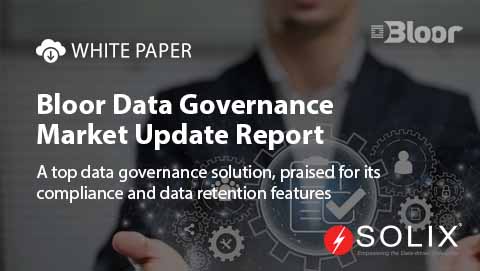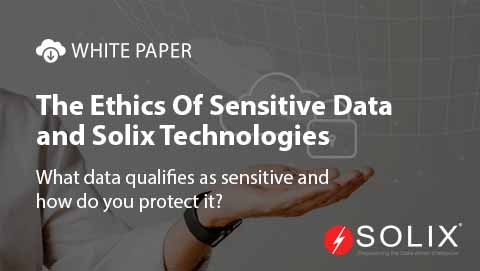Data Catalog Management
When organizations collect massive amounts of data, managing that data becomes critical. If you find yourself asking, What exactly is data catalog management and why is it essential for my organization youre not alone. Its a topic that many professionals are starting to realize is no longer optional, but a necessity. At its core, data catalog management refers to the process of maintaining a detailed database of all data assets within an organization. This helps streamline how data is used, shared, and analyzed, thereby making data-driven decisions more effective.
Let me take you through the intricate world of data catalog management, illustrating why it is pivotal through a relatable narrative. I remember when I first started in data management. There was a project where my team had to sift through various datasets from different departments. It was chaoticdata was stored in inconsistent formats, and even finding the right data took ages. A centralized and well-maintained data catalog would have saved us countless hours. Instead, we had to reinvent the wheel every time we needed specific data. This scenario encapsulates why data catalog management is not just important; its transformative.
Understanding the Core Concepts
To grasp data catalog management fully, lets break it down into its key components. First, a data catalog is essentially a repository that houses metadatadata about data. Metadata helps describe, manage, and locate data within an organization. This can include information on data sources, formats, ownership, and quality. By having this metadata organized and easily accessible, companies can enhance their data governance and accelerate data discovery.
Data catalog management aims to organize this metadata, ensuring that all data assets are appropriately categorized, described, and made discoverable. This is where the expertise and experience of a team come into play, as each piece of metadata requires understanding its relevance and utility. This expertise fosters authoritativeness in data use, allowing employees to trust the data theyre working with, ultimately leading to improved trustworthiness in the insights generated from that data.
Real-World Applications of Data Catalog Management
You might be wondering how data catalog management applies to your organization. In my experience, a well-implemented data catalog can streamline workflows immensely. Imagine a marketing team that needs to analyze customer behavior. With a data catalog in place, the team can easily identify the datasets that contain customer interactions, purchase history, and engagement metrics, making their analysis not just faster but also more comprehensive. No more digging through disparate systems looking for the right data! Instead, they can focus on crafting strategies that convert insights into actionable results.
In addition, a robust data catalog enables better collaboration among teams. When different departments can access a shared resource laden with data definitions and lineage, it creates a united approach toward data governance. This translates to high-quality data being utilized across the organization, reducing risks associated with data misuse.
Choosing the Right Data Catalog Management Solution
Finding the right data catalog management solution can feel overwhelming, given the myriad of options available. However, its essential to choose a solution that aligns with your organizations needs and maturity level. Look for features such as
- Automated metadata capture, which simplifies the process of gathering data information.
- Data lineage capabilities, so you can track where your data originated.
- User-friendly interfaces that encourage team members to engage with the catalog.
Here at Solix, we offer powerful solutions tailored for effective data catalog management. Our data cataloging solution enables organizations to track data assets systematically while ensuring compliance with governance protocols. Interested in a more efficient way to manage your data Check out the Solix Data Governance Product for more insights.
Lessons Learned from Real-Life Implementation
Now, lets talk about lessons learned from real-life implementations of data catalog management. A common pitfall is treating data cataloging as a one-off project rather than an ongoing process. Data is dynamicnew datasets are regularly created, and existing datasets evolve. Regular maintenance and updates to the data catalog are essential to keeping it relevant. Incorporating a feedback mechanism where users can suggest improvements can also be enlightening and encourage continuous participation.
Another lesson is the importance of creating a culture of data stewardship within your organization. When team members understand the value of a data catalog, they are more likely to input high-quality metadata. Training sessions and workshops can help emphasize the importance of the roles people play in data catalog management. From my experience, seeing team members take ownership of their datasets leads to a more organized and reliable data catalog.
The Connection to Solix
As you delve into implementing data catalog management, consider leveraging the solutions offered by Solix. Our tools not only aid in cataloging data but help build a governance strategy that can provide insight into your organizations data health. Data catalog management is fundamentally about trust and transparency. Solix empowers organizations to embrace these concepts by providing tools that facilitate rigorous data cataloging practices.
Feeling overwhelmed or need more information Dont hesitate to reach out to Solix for further consultation. You can contact us directly at 1.888.GO.SOLIX (1-888-467-6549) or visit our contact page for additional support.
Wrap-Up
In essence, data catalog management is an indispensable practice that can elevate how organizations interact with their data. As weve seen, its not just about maintaining a database; its about fostering a culture of data integrity by ensuring accessibility, quality, and collaboration. By implementing effective data catalog management strategies, organizations can ensure that they harness the full potential of their data assets. And with the right tools and strategieslike those provided by Solixyou too can transform your data landscape.
About the Author
Hi, Im Sandeepa data management enthusiast with a passion for teaching teams the importance of data catalog management. With years of experience in the field, I believe in harnessing the power of organized data to drive meaningful insights and informed decision-making.
Disclaimer The views expressed in this blog are my own and do not represent the official position of Solix.
Sign up now on the right for a chance to WIN $100 today! Our giveaway ends soon‚ dont miss out! Limited time offer! Enter on right to claim your $100 reward before its too late!
-

-

-
 On-Demand Webinar
On-Demand WebinarThe Power of Less: How Data Minimization Drives Data Privacy Compliance
Watch On-Demand Webinar
